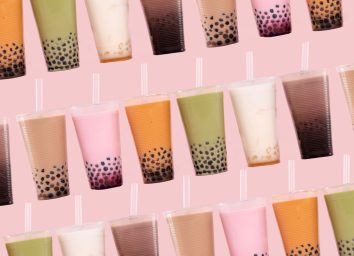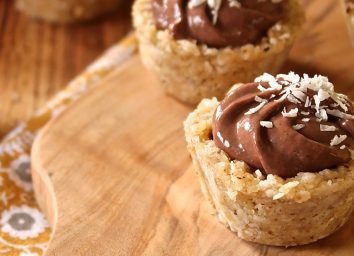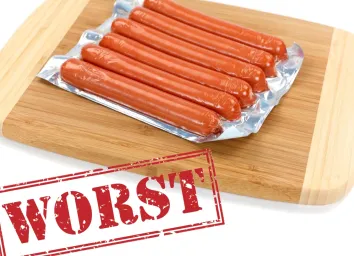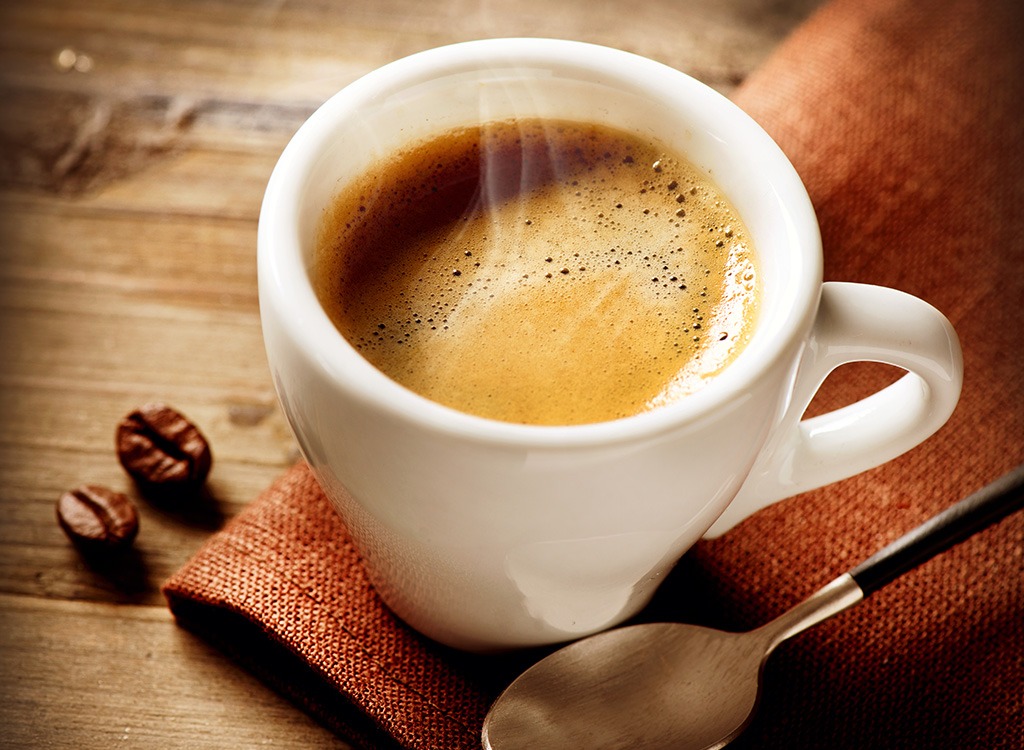
Very few of us can get through the day without the extra jolt provided by caffeine. Caffeine is by far the most popular drug on the planet with billions of people consuming it each day, primarily via beverages like coffee, soda, and several teas found in The 7-Day Flat-Belly Tea Cleanse.
Caffeine is truly a remarkable chemical that has many positive impacts on the body and mind—but it can cause serious problems if consumed in excess. Few of us really understand how powerful it is, but it’s time to change that. We break it down, below, with everything there is to know about this energy-boosting substance. Drink up this info and then sip on these 22 Best Teas for Weight Loss!
It Mimics a Vital Molecule in the Brain

We’re about to get real science-y on you, real fast, but it’s worth it. (We promise!) Adenosine is an important molecule that acts as a neurotransmitter (or a substance that transmits nerve impulses) in the brain. Caffeine’s chemical structure is similar to that of adenosine, allowing it to “mimic” adenosine and to bind to the same receptors in the brain. Adenosine makes you drowsy and depresses the central nervous system when it binds to the receptors, but when caffeine is present, it leaves fewer of these transmitters for adenosine, which “speeds up” your brain activity. Fascinating, right? Watch our video 7 Crazy Things Coffee Does to Your Body for more similar info!
You Shouldn’t Drink It First Thing in the Morning

Contrary to what you think, you actually don’t need caffeine right when you wake up. The reason: Your body’s cortisol levels are highest in the morning–it peaks about 20-30 minutes after you wake up—and then is lowest at night to help your body relax for sleep. Mixing high levels of cortisol with caffeine can increase your tolerance, making caffeine less effective. The best time to drink coffee is mid-morning and mid-afternoon, which are the times when your cortisol is lowest.
Caffeine Takes About 10 Minutes to Kick In
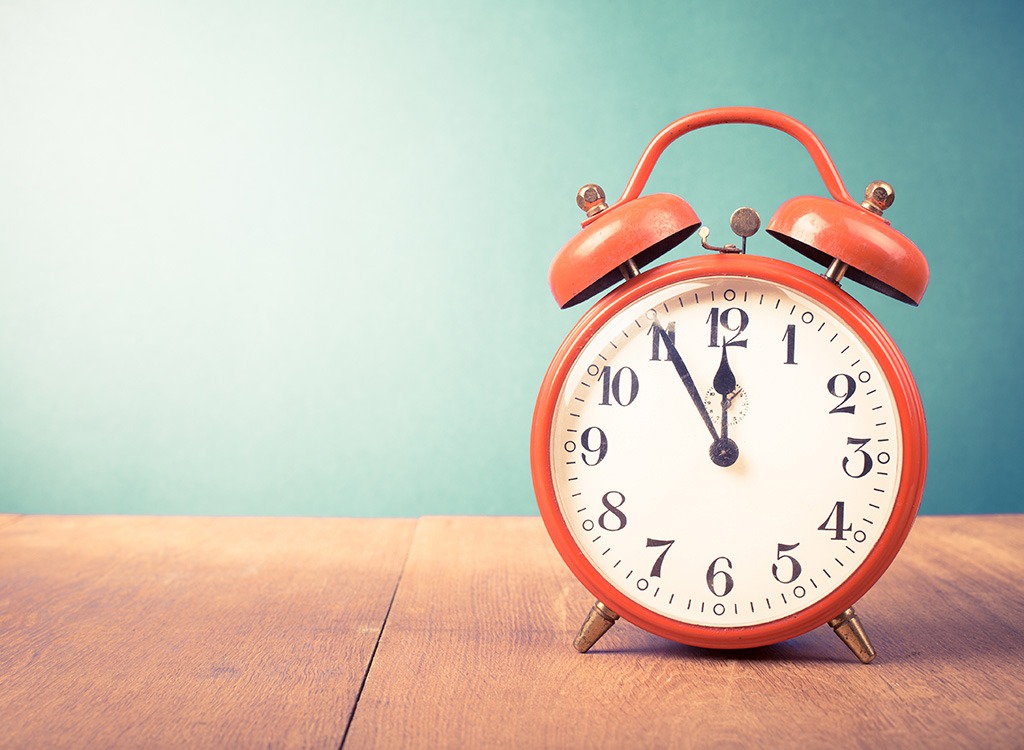
Caffeine has an impact on your body in as little as 10 minutes and reaches its peak level of effectiveness within 45 minutes of your first sip. You could feel the effects of the caffeine for about three to five hours after you finish that Cuppa Joe, depending on how fast your body metabolizes it. Speaking of, don’t miss these 55 Best-Ever Ways to Speed Up Your Metabolism!
Most of Us Consume Caffeine Daily
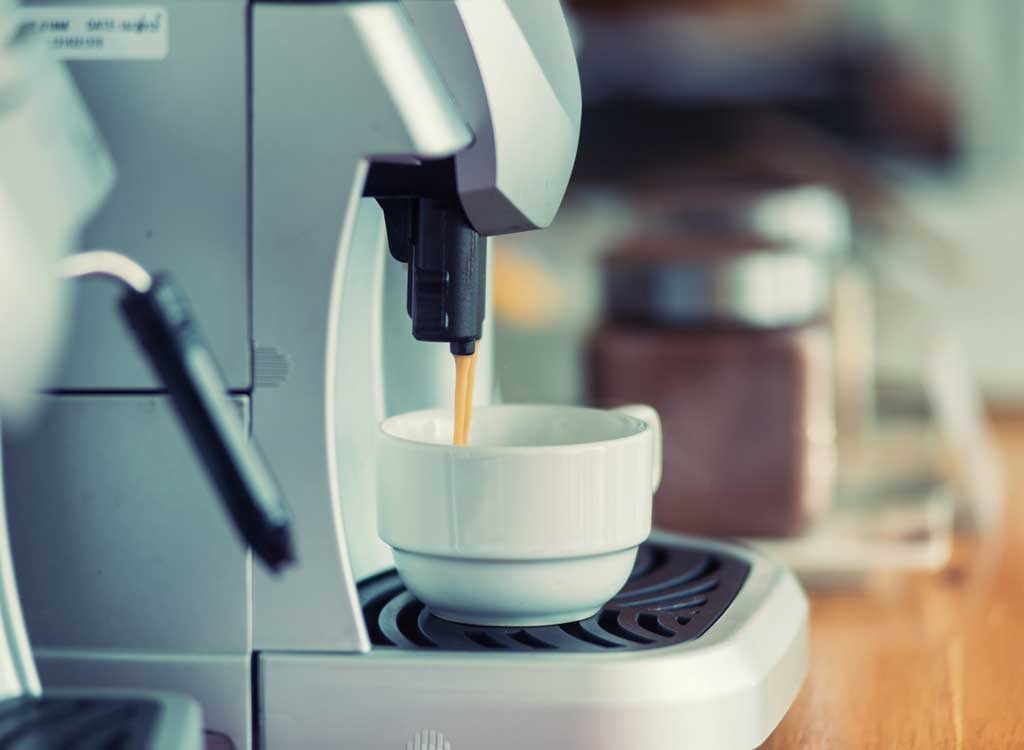
Ninety percent of people consume caffeine at some point during the day, according to the U.S. Food and Drug Administration. And while Americans love designer coffee drinks, it doesn’t even rank in the top 10 of coffee-drinking countries. According to 2013 data from EuroInformer.com, Finland consumes the most with 9.6 kg per capita of roasted beans, which works out to about 2.64 cups per person, per day.
It Affects People Differently

Age, race, and gender are just a few of the things that can influence how caffeine is processed in the body. As a rule, women generally metabolize caffeine faster than men, and smokers process it twice as quickly as non-smokers. People of Asian backgrounds tend to metabolize caffeine slower than people of other racial backgrounds, too.
Your Body Can Tolerate Caffeine… to a Point

Adults in good health can generally tolerate a whopping 400 mg of caffeine a day, according to the Mayo Clinic. But what you can and should do can be a blurry line once things become a habit; heavy caffeine use is described as regularly drinking between 400 and 600 mg a day.
Espresso Contains the Most
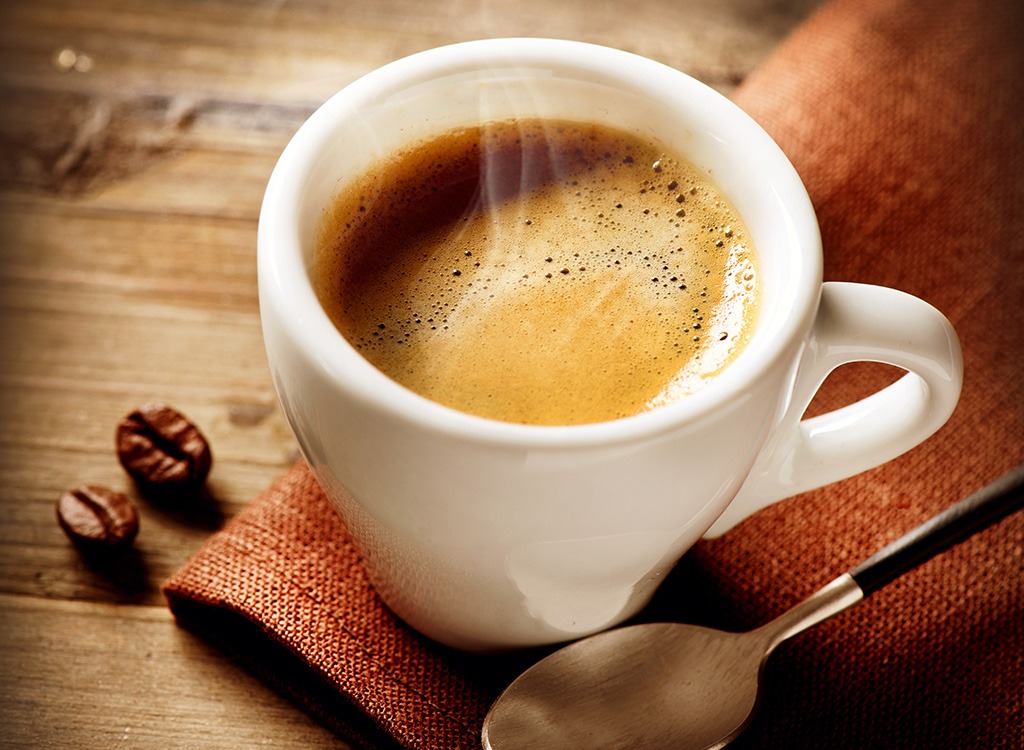
A shot of espresso has the most caffeine per ounce, clocking in at 51.3 mg while drip coffee contains about 18.1 mg. Espresso beans are no different than regular coffee beans; the only difference is in the preparation process, making it much more concentrated than regular drip coffee.
Energy Drinks Have More Caffeine Than Advertised
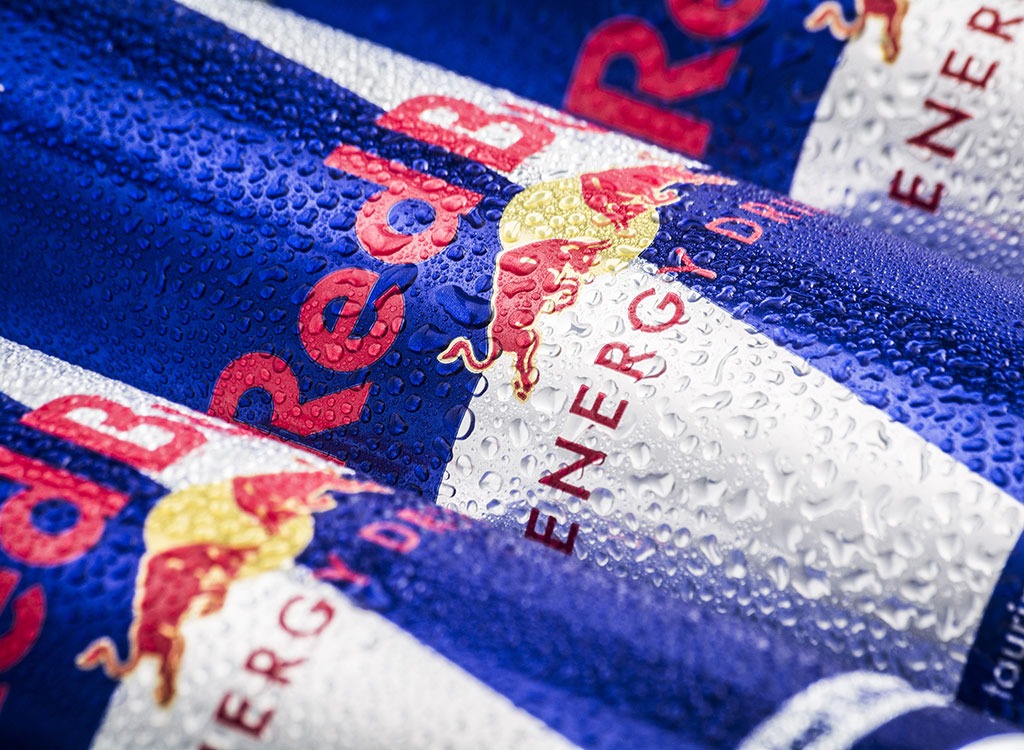
A 2012 study found that many energy drinks don’t put accurate caffeine counts on nutrition labels and that they often contain more than advertised. Popular energy drinks like Red Bull, AMP, and Monster contain about 10 mg per ounce, giving those who drink it a jolt of 120 mg or more per 12-ounce can. P.S. – Energy drinks are one of the 50 Unhealthiest Foods on the Planet. Just sayin’.
Caffeine From Coffee and Green Tea is Good for You
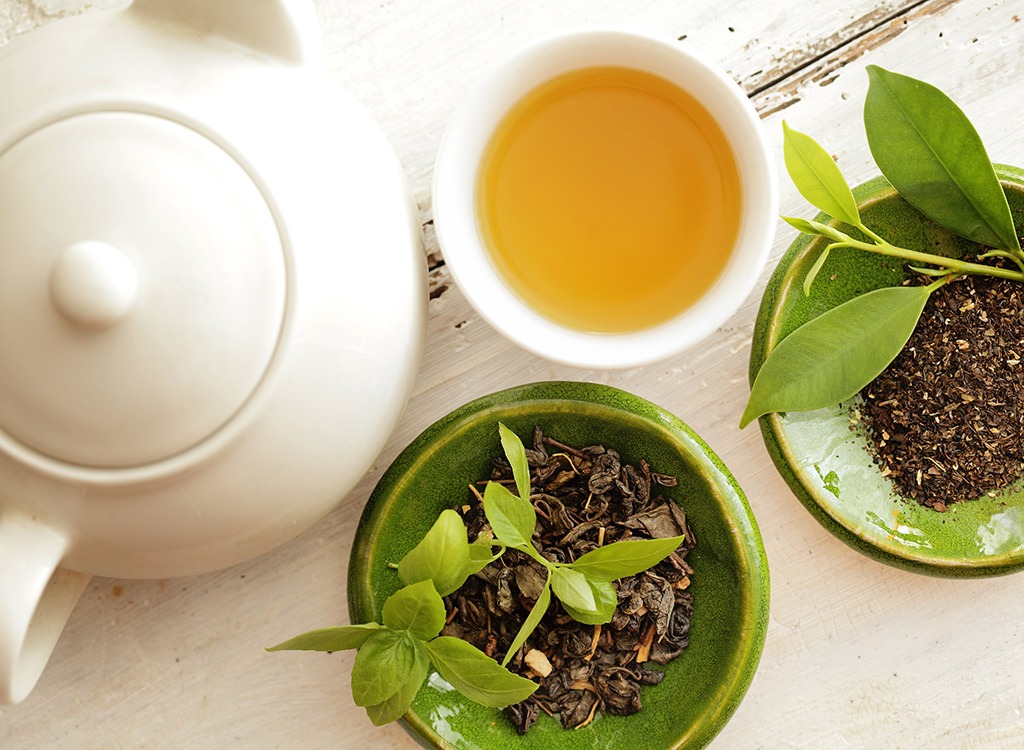
Caffeine is most plentiful in coffee and green tea, but that’s not all these all-natural beverages have to offer. Both coffee and green tea are chock full of antioxidants that can help fight off free radicals. Green tea also contains catechin, including the powerful compound called epigallocatechin gallate, or EGCG, that is shown to help fight belly fat. It’s such an amazing drink that test panelists for the The 7-Day Flat-Belly Tea Cleanse lost up to 10 pounds in just seven days.
Energy Drinks Are a Terrible Source
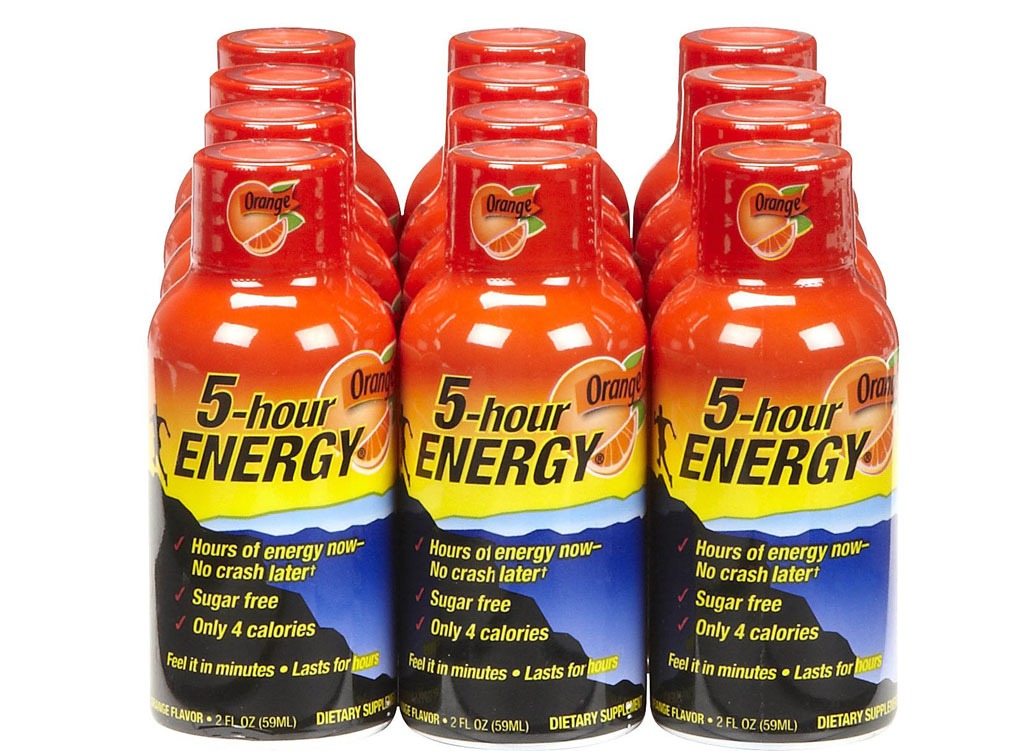
It isn’t the caffeine in energy drinks that is unhealthy; it’s the other ingredients put in each concoction by manufacturers. Energy drinks are routinely stuffed full of sugar, artificial colors, and other ingredients like taurine, panax ginseng root extract and L-carnitine—all ingredients that are not fully explained and many of us don’t understand.
Some Coffee Brands Have More Caffeine Than Others

Think you’re getting the same cup of coffee at McDonald’s as you do at Starbucks? Think again: A 2014 study conducted by Thrillist found that there’s a big difference in coffee depending on where you buy it. McDonald’s coffee comes in at about 9.1 mg of caffeine per ounce while Dunkin’ Donuts contains 12.7 mg per ounce and Starbucks at a whopping 20.6 mg per cup. Check out the entire McDonald’s Menu—Ranked! before your next Mickey D’s order.
Dark Roast Coffees Have Slightly Less Caffeine Than Light Roasts

It may seem strange since espresso is dark and contains a lot of caffeine, but dark roasted varieties of coffee have less caffeine than lighter roasts. This is because lighter roasts are exposed to less heat than dark blends. That said, you won’t notice a huge difference in your energy between the two.
Caffeine is Found in Over 60 Plants
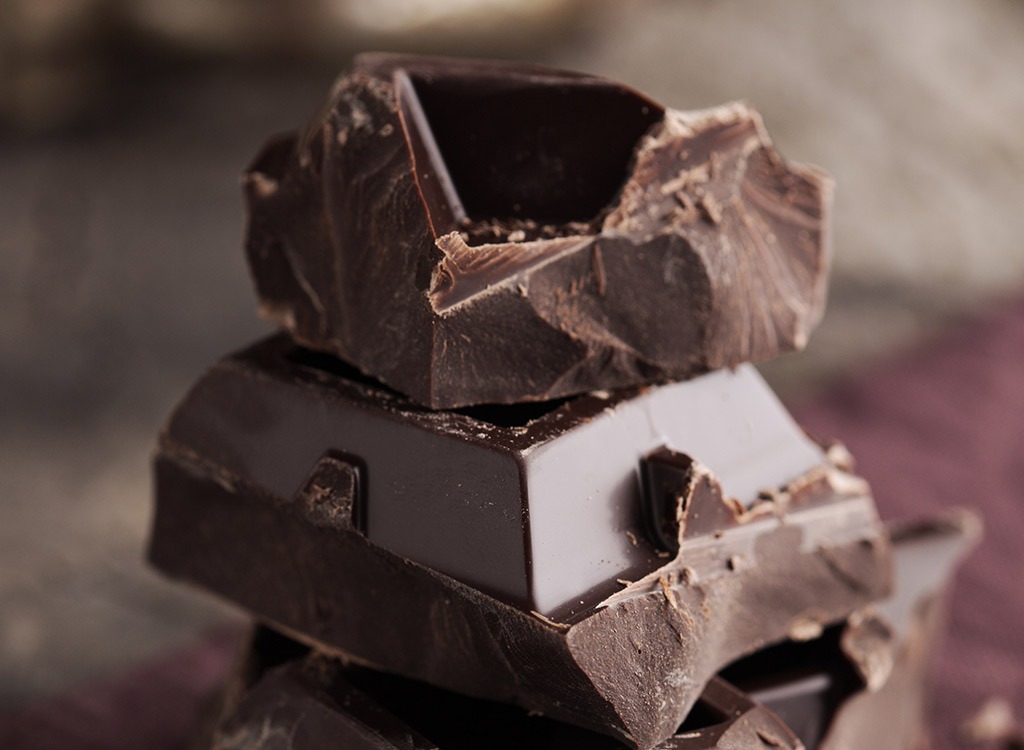
Caffeine is a naturally-occurring found in over 60 plants. The most well-known as coffee beans and tea leaves, but it’s also present in cocoa beans and yerba mate, guarana berries, and guarusa. Dark chocolate—made from cocoa beans—contains more caffeine than its milk chocolate counterpart. Just don’t give any chocolate to your pup; even though dark chocolate is a superfood for humans, it’s a “worst” on our list of Best and Worst Foods for Your Dog.
You Can Become Dependent on It
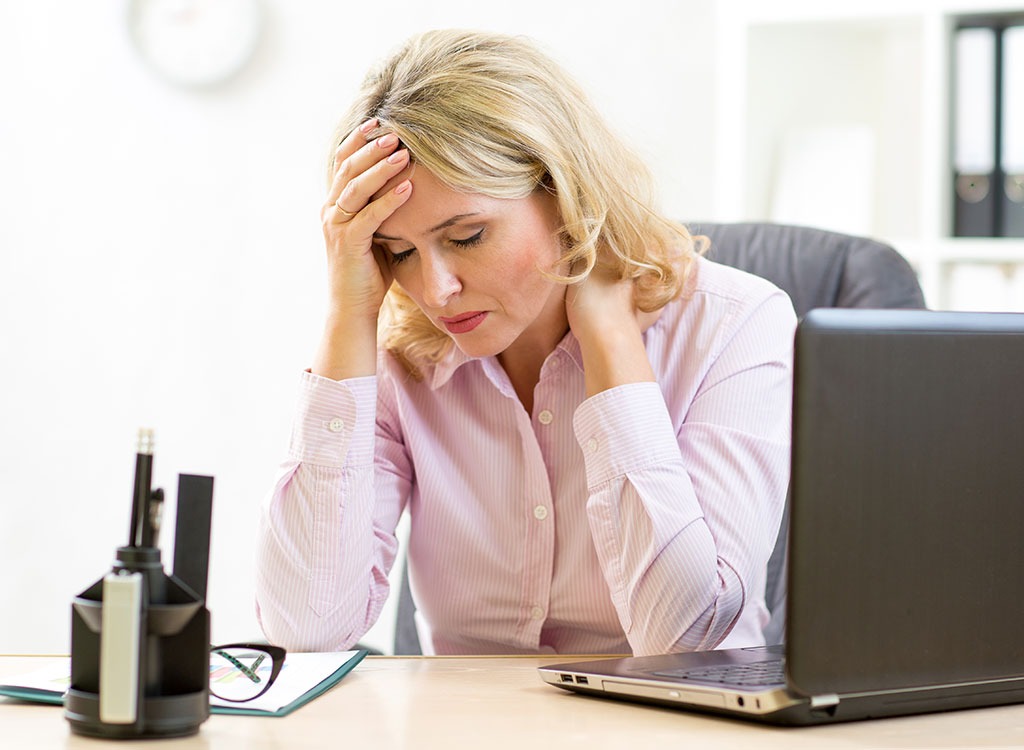
When caffeine binds to the adenosine receptors, the brain responds over time by creating more of them. As that happens, the chemistry of the brain changes, resulting in the need for more caffeine to create the same effect.
Too Much Can Be Toxic
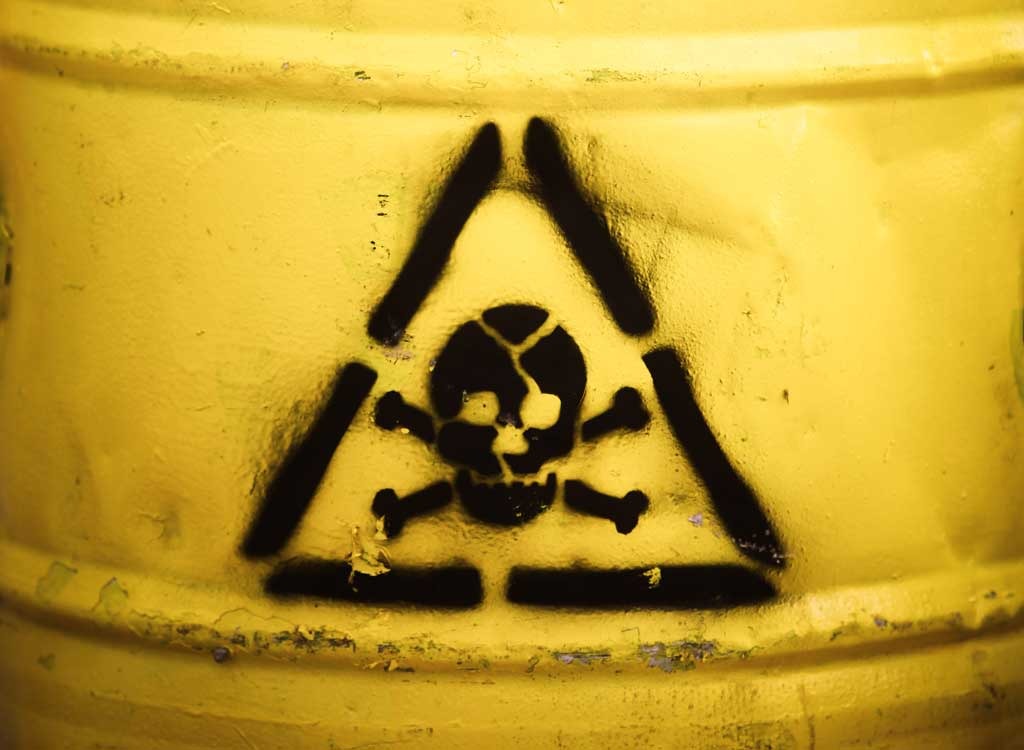
It is possible to die from a caffeine overdose, but the exact amount it will take to kill a person isn’t entirely clear. It’s estimated that it’ll take consuming about 150 to 200 mg of caffeine per every 2.2 lbs. of body mass in relatively short time to kill an adult. That works out to about 75 to 100 cups of coffee.
The Most Dangerous Form is Powdered Caffeine
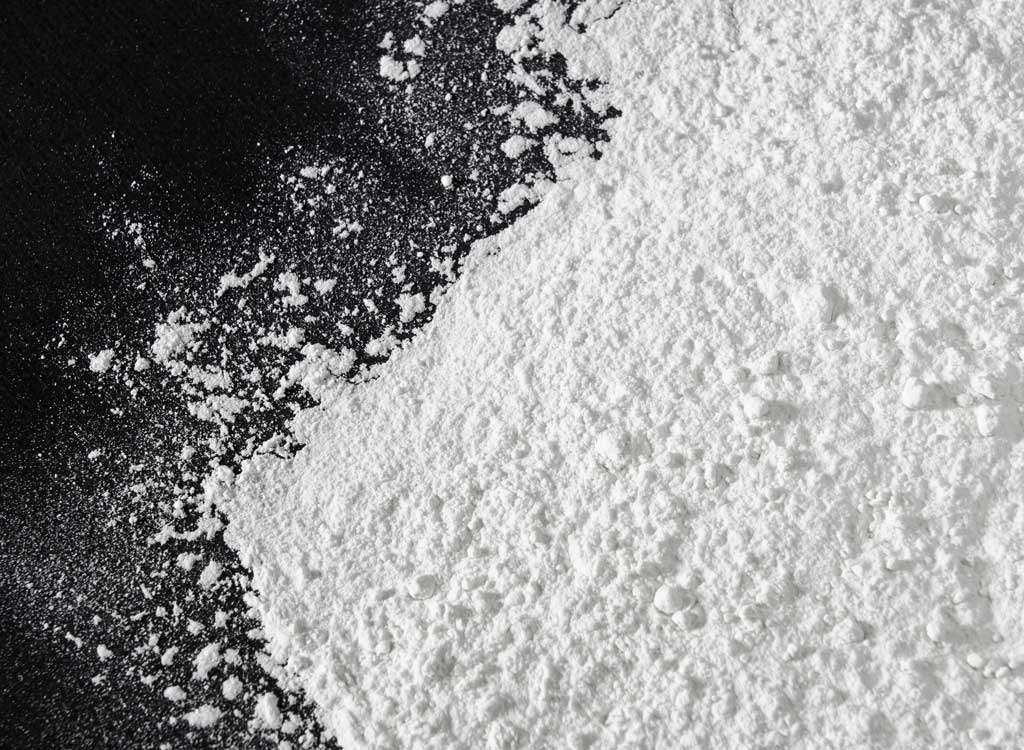
The deaths of at least two young men have been linked to the ingestion of powdered caffeine, a substance that is almost 100 percent caffeine. One teaspoon of the powdered chemical is equivalent to about 26 cups of coffee, according to the U.S. Food and Drug Administration.
Caffeine is Safe-ish for Pregnant Women
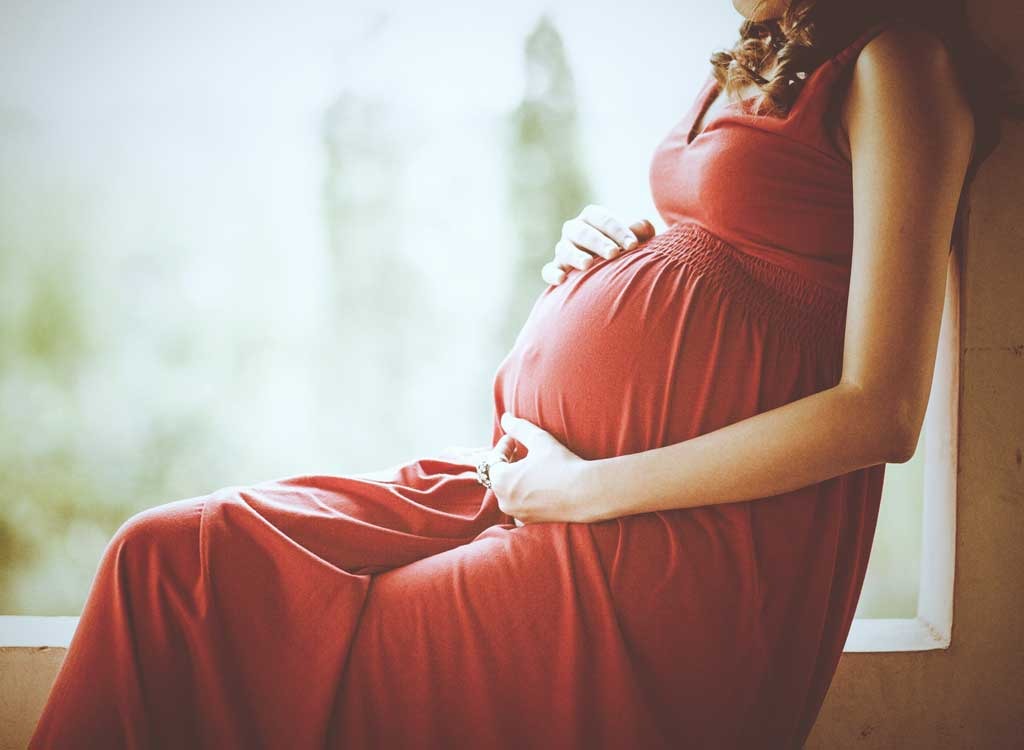
Moms-to-be can drink caffeine, but it’s best if you keep it in moderation because it can cross the placenta and affect the heart rate of an unborn child. The Mayo Clinic says that a daily caffeine intake of 200 mg a day is generally fine for both mom and baby, but your doctor should have the final call. If you’re pregnant (or want to be), definitely check out our exclusive report on the 40+ Most Popular Types of Fish—Ranked for Nutrition!.
The Majority of Kids Drink Caffeine Every Day

A 2014 study by the American Heart Association found that nearly 73 percent of children in the United States consume some sort of caffeine every day. Children over six can only tolerate about 100 mg of caffeine a day; younger children even less. Energy drinks—the popular choice among kids—clocks in at way over the recommended amount of caffeine at 300 mg. This overexposure leads to thousands of emergency room visits a year, and the same 2014 AHA study found that 40 percent of the 5,156 calls to poison control centers for “energy drink exposure” involved children ages six and under.
It Can Be Absorbed Through the Skin

Can you get a caffeine jolt from soap? One maker of the caffeine-laced soap Shower Shock says so, selling a lather that “contains approximately 12 servings/showers per 4-ounce bar, with 200 mg of caffeine per serving.” Though it technically can be absorbed through the skin, general consensus in the science community says it’s unlikely it’ll be enough to get the same effects as drinking it. It can, however, help reduce the appearance of cellulite.
A Ton of Products Contain Caffeine
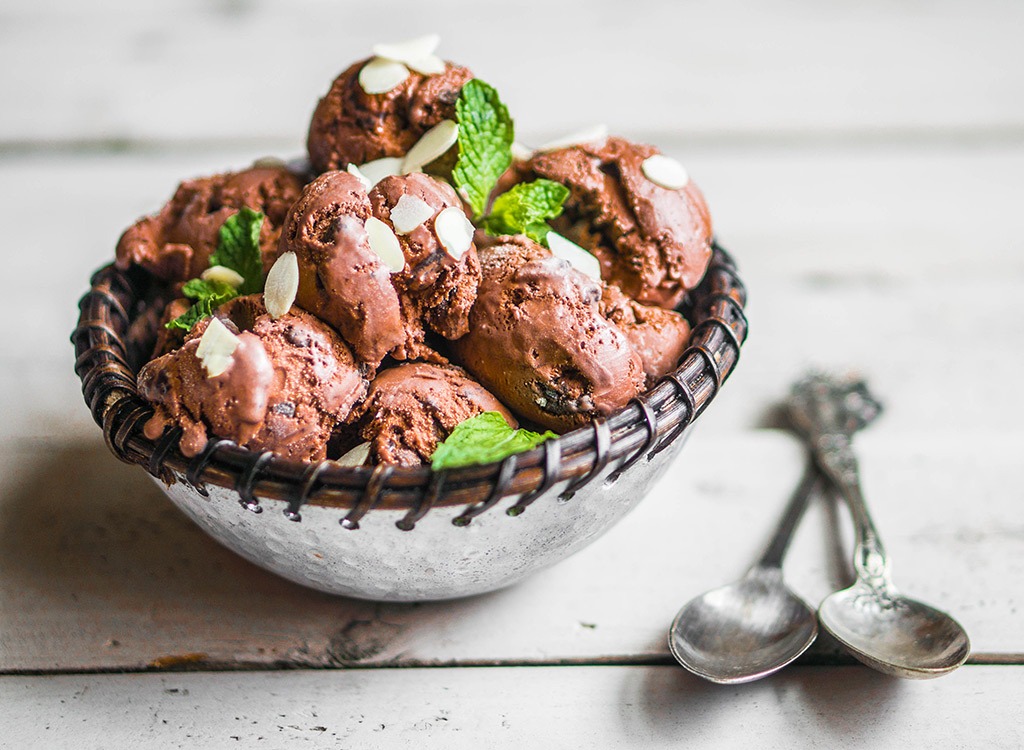
Caffeine is present (either naturally or added) to a variety of products. You might not even realize some of the products have caffeine since the U.S. FDA doesn’t require it on nutrition labels. Ice cream, especially coffee flavors, can contain as much caffeine as a can of soda. Some brands of breath fresheners, sunflower seeds, and even beef jerky also infuse caffeine into their creations.
It Can Stop Hair Loss
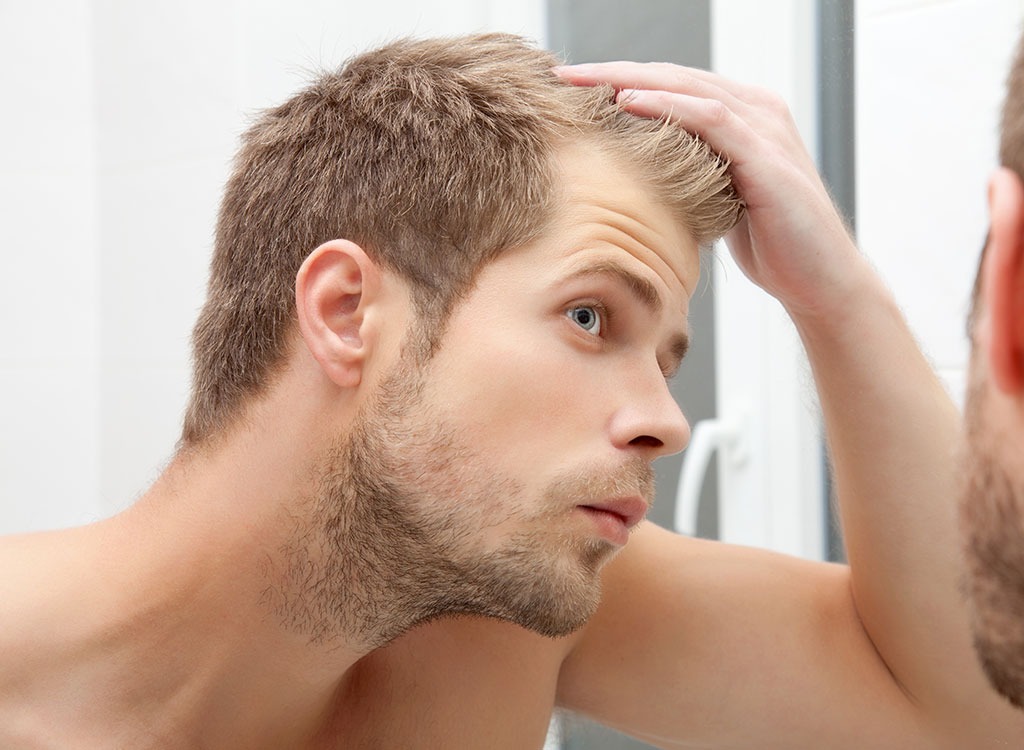
Shedding more hair than you used to? A German doctor says that caffeine can help reverse the loss. Dr. Adolph Klenk has created a line of therapeutic shampoos and topical treatments designed to treat hair loss by applying caffeine directly to the hair. You’d have to down 40 to 50 cups of coffee to get the same effect, according to Dr. Klenk, because the body metabolizes the caffeine before it has a chance to make its way to the hair root. Want shiny, silky hair and hoping to prevent hair loss? Find out the The Best & Worst Foods for Healthy Hair.
Caffeine Withdrawal is a Real Problem
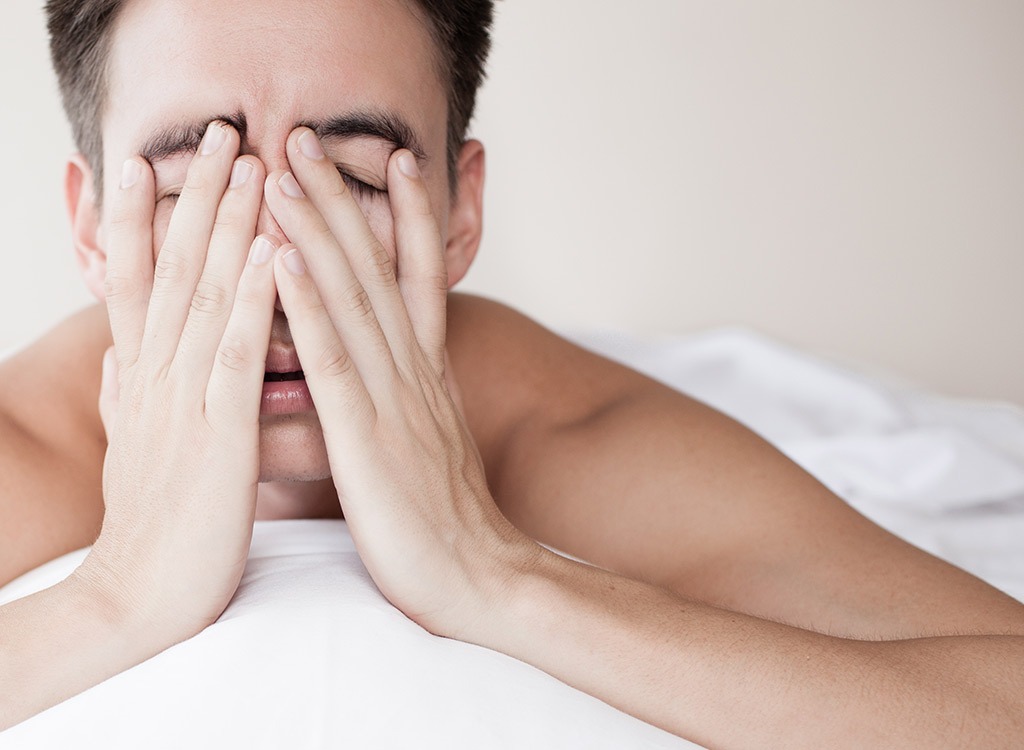
Caffeine affects the central nervous system and, like other drugs, can cause withdrawal symptoms if you stop taking it. In fact, in 2013, the dependency on caffeine was added as an anxiety disorder to the Diagnostic and Statistical Manual of Mental Disorders. Luckily, unlike other drugs, the symptoms of caffeine withdrawal will take care of themselves over time without the need for treatment.
Caffeine Can Cause Weight Gain
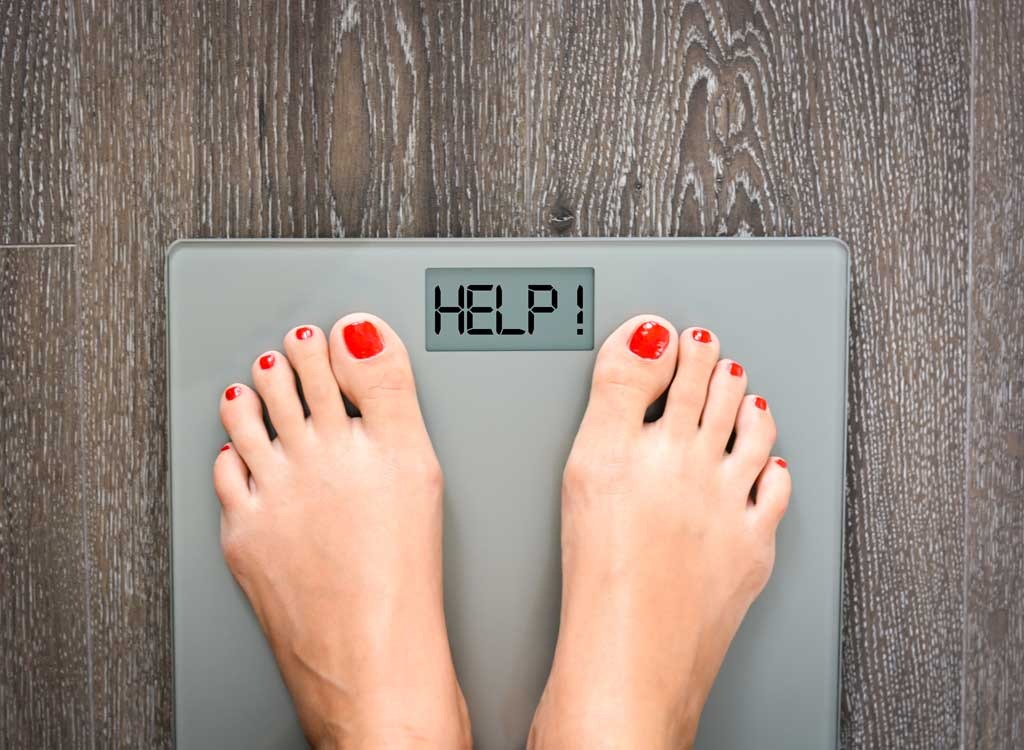
The catechins in caffeine-laced green tea can help with fat loss, but consuming too much caffeine can actually make you gain weight. The reason? Copious amounts of caffeine boost cortisol. Cortisol helps control our bodies, but it’s also one of the biggest culprits of weight gain—especially belly fat.
It Can Help You Poop
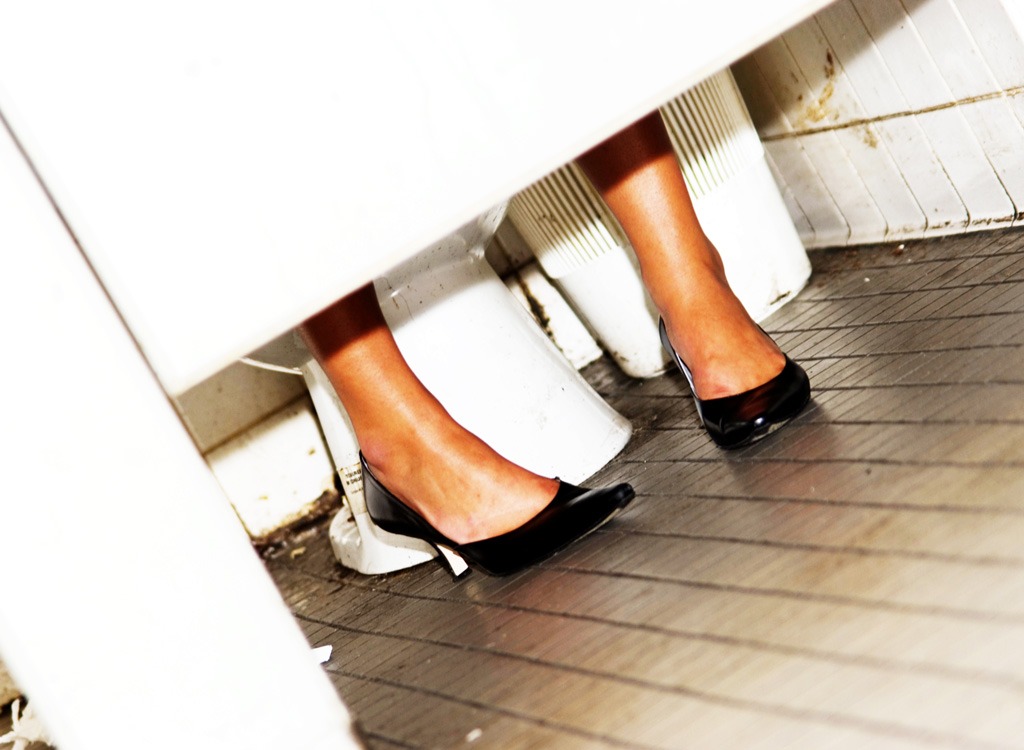
There’s a reason why so many people high-tail it to the bathroom after a cup or two of coffee. Coffee has been shown to promote a “gastrocolonic response” in the body shortly after consumption. A 1990 study published in the journal Gut also found that coffee promotes the release of Gastrin, a hormone that can increase colonic activity.
It Won’t Help You Sober Up
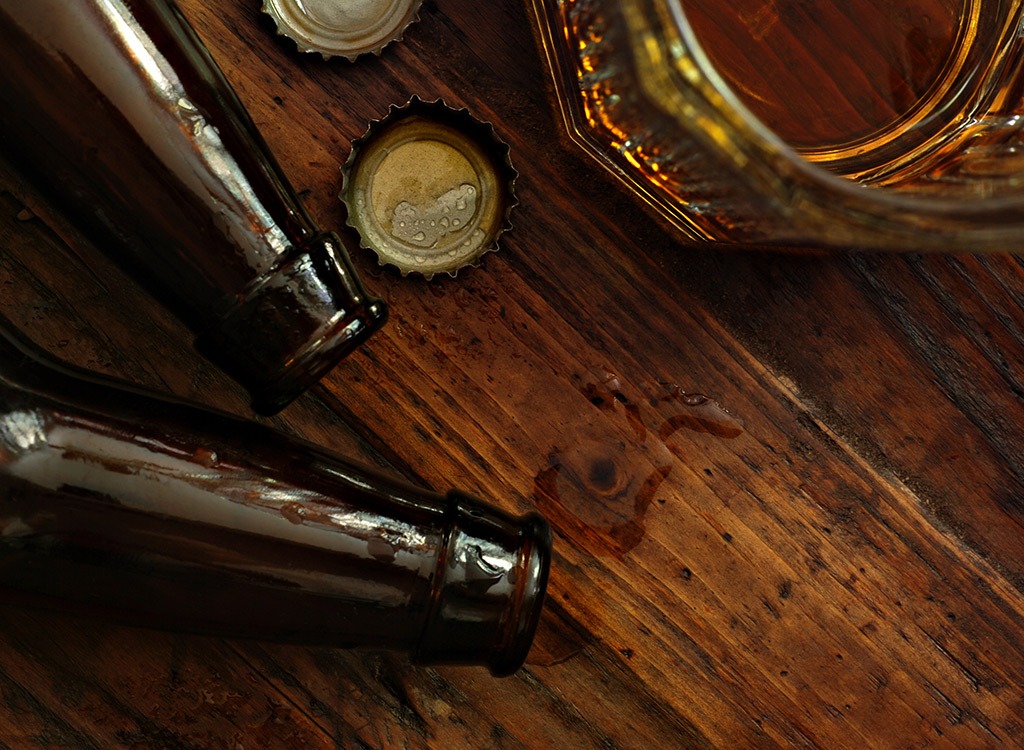
Coffee has long been the go-to drink for those trying to “sober up” after a night of drinking. The truth is that the caffeine in coffee won’t help your body metabolize alcohol faster, but it can make your body think you’re more sober than you actually are, thanks to its stimulant effects. Your best bet: Call a cab and let the coffee wait until morning. You could also just not drink so much; only having one or two drinks is one of the 21 Things People With Six-Packs Do Every Week.
It Can Decrease Your Stroke Risk
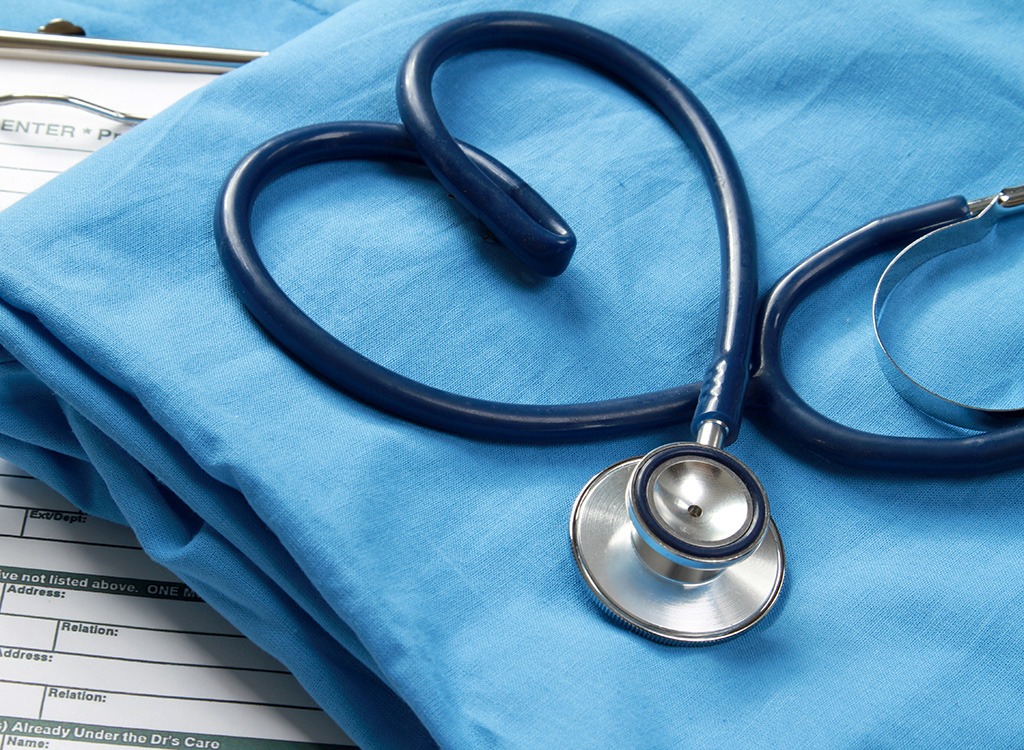
Caffeine was once believed to increase the risk of stroke, but a study of 83,000 women published in the journal Circulation showed that women who drink coffee had less risk of stroke than those who don’t drink it on a regular basis.
Caffeine Can Improve Your Workout Performance
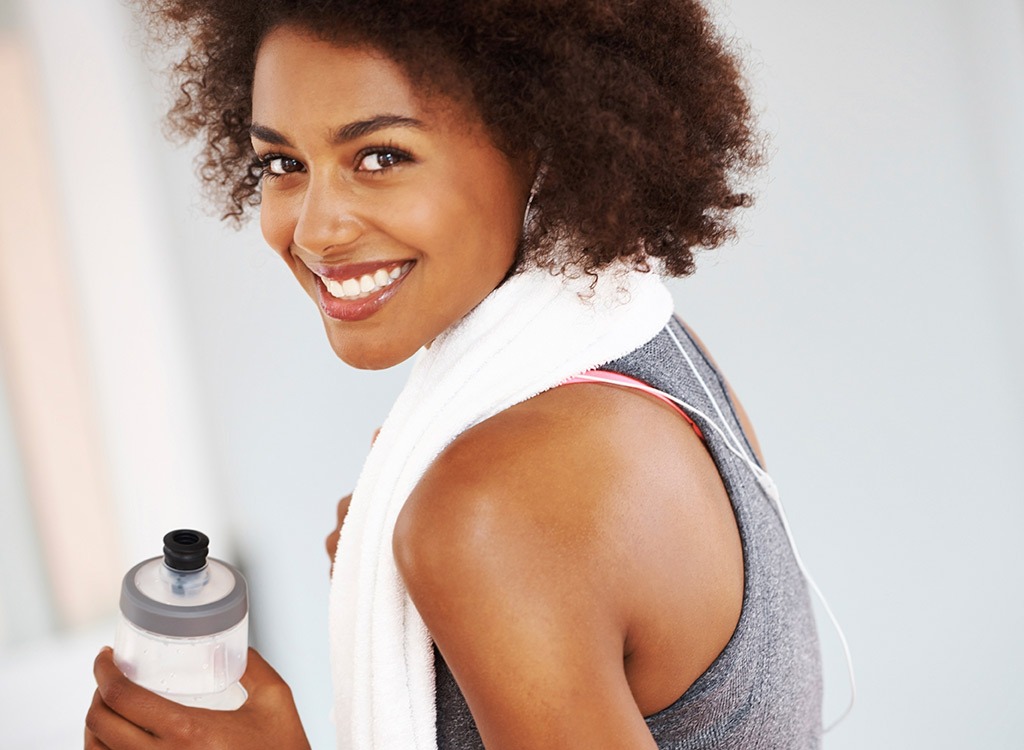
Need a little extra motivation to hit the gym? Drink a cup of tea or coffee. Caffeine is shown to increase adrenaline levels in the blood. Adrenaline—the “fight or flight” hormone—readies your body for physical exertion. For best results, drink a cup of simple black coffee about 30 minutes before you hit the treadmill or weight room. For more ways to get your butt in gear, check out these 40 Tips for Motivation—That Actually Work!
Caffeine Can Ease the Symptoms of Parkinson’s Disease
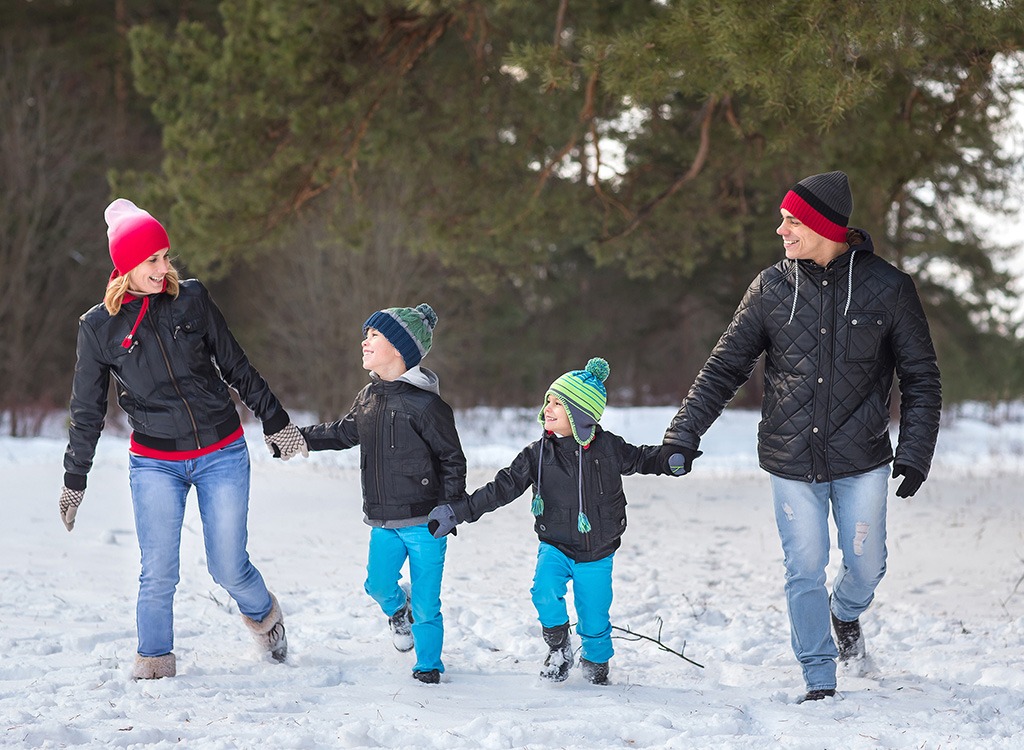
A study published in the online issue of Neurology in 2012 examined how caffeine affects the alertness of people with Parkinson’s disease who were showing symptoms of daytime sleepiness. Participants took a 100 mg caffeine pill twice per day for three weeks, then a 200 mg pill twice per day. Six weeks in, those taking the caffeine pills showed a five-point improvement over those in the group who were given placebos.
It Can Boost Your Mood
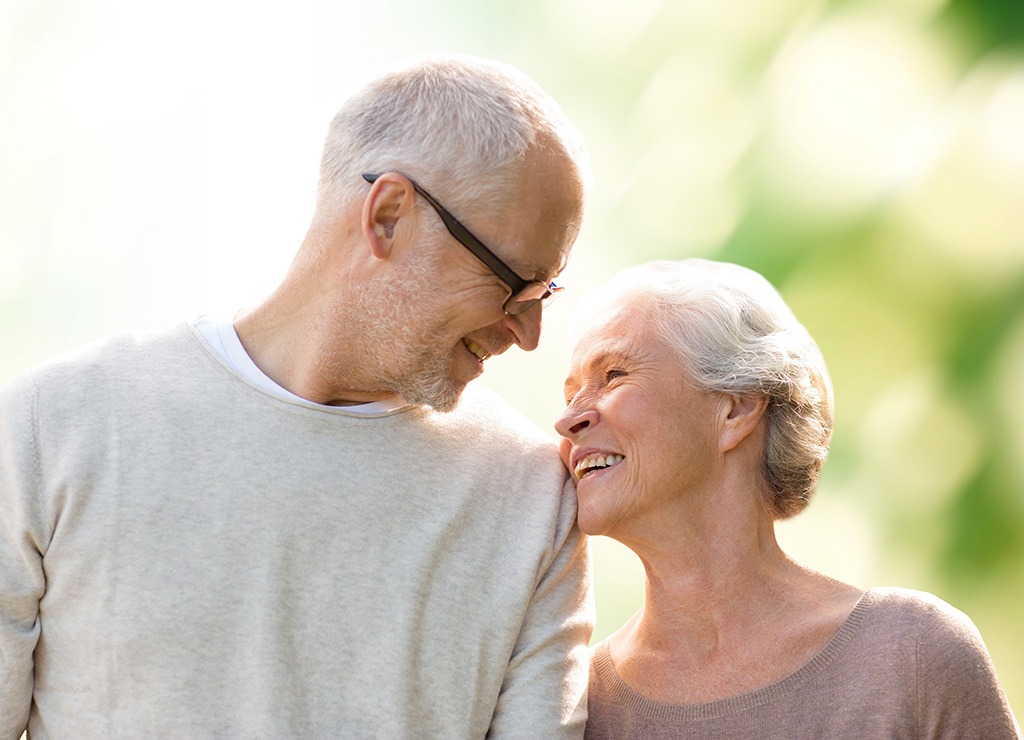
Do you notice you’re happier after a cup of coffee? That’s not just your imagination. By blocking adenosine, caffeine also stimulates the release of dopamine, a feel-good chemical that’ll make you feel happy, less sluggish and more content with life. Eat your way happy with these 23 Foods That Happy People Eat!
It Can Boost Your Memory

Having trouble remembering names? Take a swig from that glass of iced black tea. A study conducted at Johns Hopkins found that test subjects who were given caffeine and then shown a series of images were better able to recall patterns 24 hours later than those who didn’t consume caffeine.
Sodas Contain the Least Amount of Caffeine
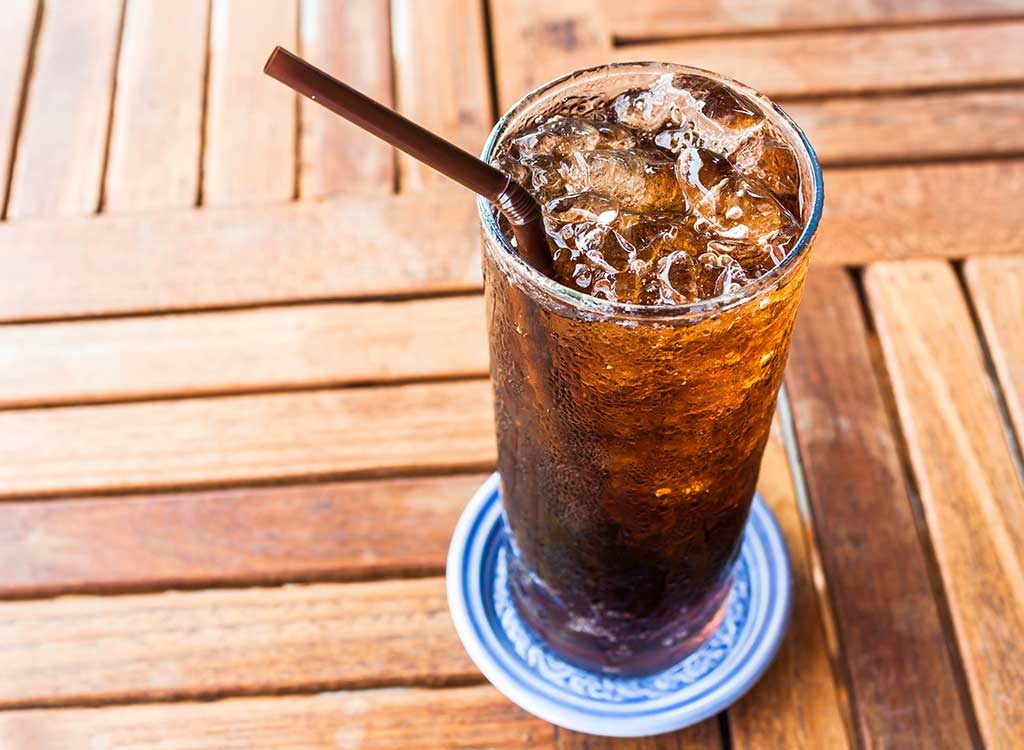
Sodas are terrible for the body for a variety of reasons, but it’s not because of caffeine content. A typical 12-ounce can of Coca-Cola actually only contains about 34 mg of caffeine. That said, some brands (like Jolt) can contain much, much more, so always read the labels. Or just stop drinking soda, which has been proven to cause a “soda belly” in regular drinks, which is similar to a beer belly.
Some Pain Relievers Contain Caffeine
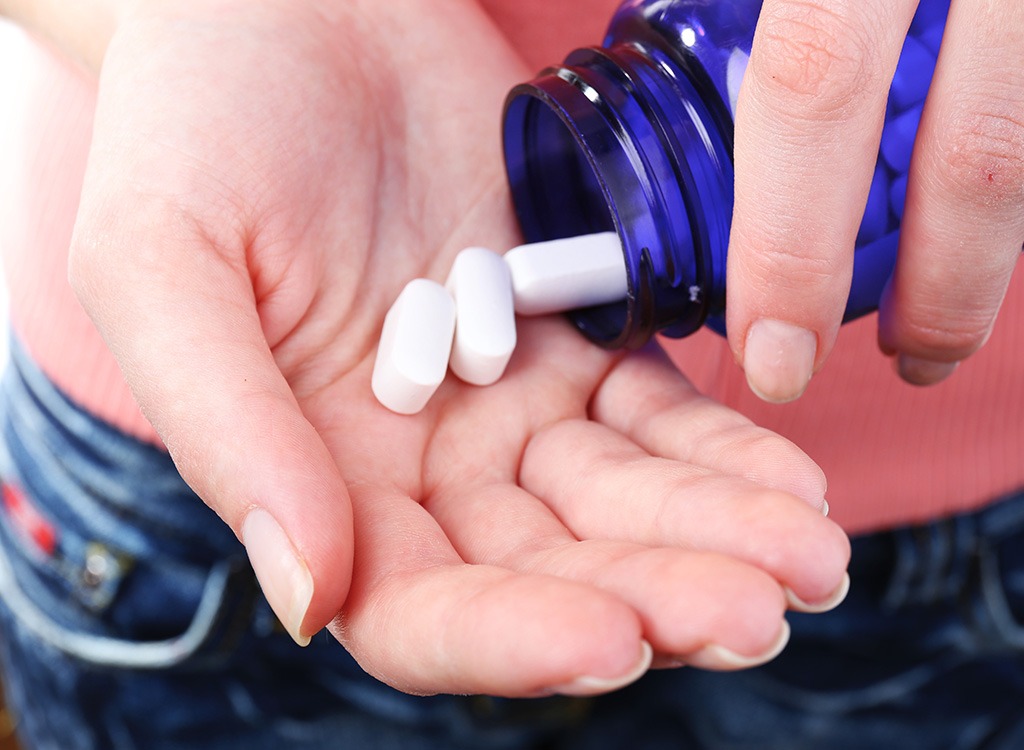
Caffeine is shown to help alleviate pain, so many pain relievers (including Excedrin, Midol, and others) contain some with other active ingredients. Two Excedrin Migraine tablets have 130 mgs, which is as much as a cup of coffee. So, taking even a few doses a day can make you hit your caffeine limit of 400 mg. Add a couple of cups of coffee in and that’s well above the daily amount that you’re advised.
It Helps With Erectile Dysfunction
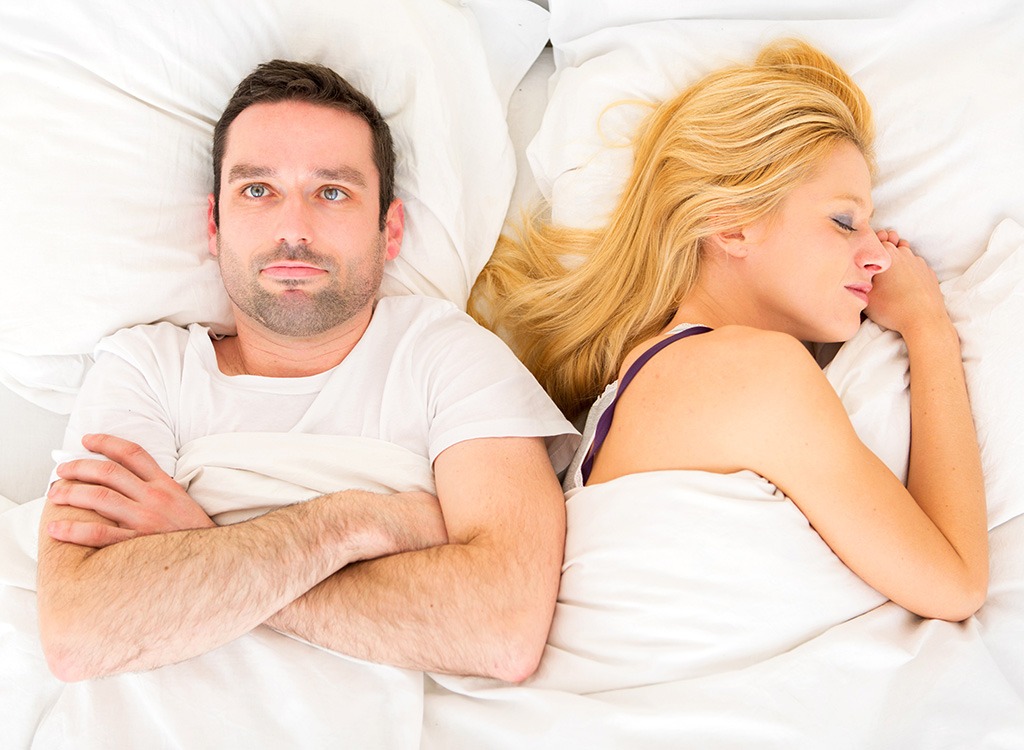
A study published in the journal PLOS One found that caffeine has a relaxing effect on arteries, which helps improve blood flow to the penis. Those who consumed between 85 and 170 mg were 42 percent less likely to suffer from erectile dysfunction. But can you guess the #1 best fruit for your penis?
It Boosts Your Metabolism
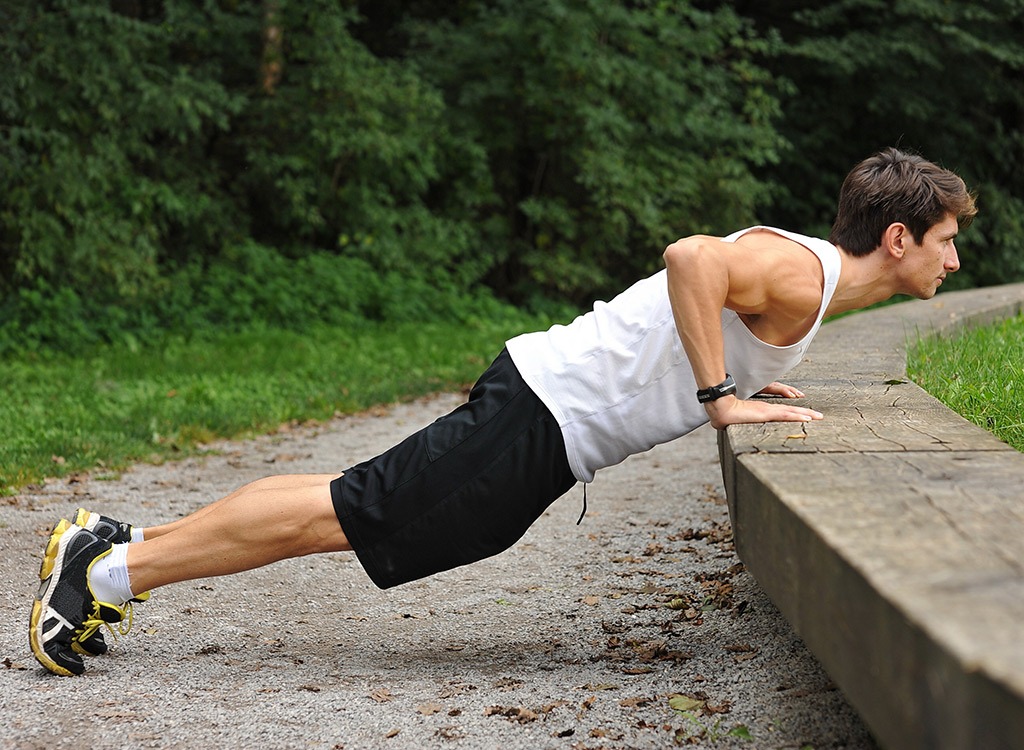
An excessive amount of caffeine consumption doesn’t do your waistline any favors, but studies have shown that it can boost metabolism for a few hours after consumption.
Decaf Does Not Mean Caffeine-Free

Sipping a cup of decaffeinated coffee might seem like an easy way to get the taste of coffee without the stimulating effects, but a study published in the Journal of Analytical Toxicology found that of the nine decaffeinated brands studied, all but one contained caffeine. The doses ranged from 8.6mg to 13.9mg, much less than regular coffee. It’s not that anyone is trying to trick you; it’s just that coffee with less than 1 percent caffeine by weight. Regular coffee hovers around 2 percent and coffee flour is at 2.5 percent.
